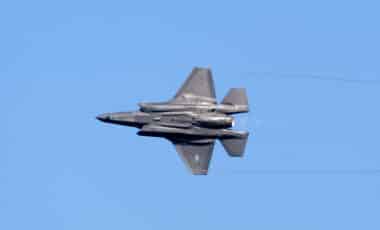Article by Nick Jacobellis
The first time I trained with a Ruger Mini 14 was while serving as a U.S. Customs Patrol Officer
back in the 1980s. When I transferred from New York City to Miami, during The Miami Vice Era of the
Drug War, I was issued a Colt CAR15, a Parkerized Remington Model 870 12 gauge shotgun and a
9mm Walther MPK submachine gun. (Even though I trained with the Heckler & Koch 9mm MP5 sub
gun, I elected to utilize the older Cold War era Walther MPK.) After serving as an Air Officer and as a
Special Agent assigned to air smuggling investigations in Miami, I transferred out west. Before doing
so, I purchased a GB Model Mini 14 through Ruger’s Law Enforcement Buying Program. Shortly after
I arrived at my new duty station, I qualified with my Mini 14 on the required course of fire. Even
though I had a lot more trigger time on the Colt CAR15, I had no problem making the transition to the
Mini 14.
From an operational perspective, the Mini 14 is a scaled-down version of the famous M14 that
is chambered in 7.62×51/.308 caliber. This comparison also extends to the semi-automatic Springfield
Armory M1A1 and the Springfield Armory SOCOM16.
While I tend to prefer the sights on M16/M4/AR15 rifles/carbines, including the sights
on fixed carry handle variants, I have no problem using the sights on a Ruger Mini 14. The Ruger Mini
14 also worked well in the wide open spaces of a border state, where I didn’t need to operate a
rifle like the Colt CAR15, which was fitted with a collapsible polymer stock. If I required a
more compact rifle, I could have easily installed a collapsible stock on my Mini 14. After I
retired, I purchased a stainless steel version of the Mini 14, that was fitted with an after-market side
folding paratrooper stock.
I also never had a problem transitioning to the paddle-style magazine release lever or the rock
and lock method of securing a loaded magazine into the lower receiver on the Mini 14. This design
feature is by no means unique and is utilized for good reason on the M14/M1A1/SOCOM16, the AK47
and AK74. As far as comparisons go, while an empty M16/AR15/M4 is loaded by simply inserting a
loaded magazine into the magazine well and retracting the charging handle, the Mini 14 is loaded by
inserting the magazine at a slight angle then rocking the magazine to the rear to lock it into position.
Once the magazine is locked into position on the Mini 14, the charging handle can be cycled to load the
chamber.
RELIABILITY
Even though I never experienced a stoppage or a malfunction of any kind with a super-reliable
Uncle Sam issued Ruger Mini 14, or with any of the Mini 14s that I owned or field tested, I always
wondered why Ruger didn’t make a version of this rifle available, that utilized M16/AR15 magazines. I
say, this because M16/AR15 magazines are like weeds and grass, they’re everywhere. I am not alone in
this regard. Numerous fans of the Mini 14 have expressed the same desire to see a Mini 14 variant
manufactured that accepts M16/AR15 magazines. Since the customer is always right, one would think
that Ruger would make such a model available.
I should add, that this observation had nothing to do with the fact, that the original “high
capacity” Mini 14 magazines were limited to accepting 20 rounds of ammunition. As someone who
started his law enforcement career while armed with a six-shot Smith & Wesson Model 10 .38 Special
revolver with a four-inch barrel, I never felt under-gunned when I carried any semi-automatic rifle in
harm’s way with a supply of 20-round magazines. Even though Ruger eventually began producing
super reliable 30-round Mini 14 magazines, fans of these rifles would still like to see a variant made
that accommodates M16/AR15 magazines.
STAINLESS VS BLUE STEEL
The fact that Ruger manufactures Mini 14 variants in blue steel and stainless steel provides end
users with the option of owning a rifle that can hold up to the rigors of harsh/demanding operating
conditions. This specifically applies to jurisdictions with exceedingly high humidity and are located in
close proximity to salt water, salt air, and swampy terrain. While firearms with blued steel can remain
fully operational with the proper care, there are certain advantages to utilizing firearms that are
manufactured in stainless steel, or with some type of proven corrosive-resistant finish. As a result, if
given the choice between a Ruger Mini 14 with a blued steel finish, or one constructed in stainless
steel, I’d choose the stainless model. However, stainless steel firearms still require proper maintenance,
and must be properly lubricated and properly cleaned, when exposed to harsh operating conditions. In
addition, I highly recommend that you lubricate firearms that have been secured in a safe or in a
vehicle for any period before being considered ready for home defense or field use.
All Mini 14s are powered by a reliable Garand style breach bolt locking fixed position gas
system, are extremely reliable and are as combat accurate as any rifle you will probably ever need to use in
an emergency. The plain vanilla version of the Mini 14 with adjustable iron sights and a wooden stock
has an 18.5-inch barrel and weighs 6.75 pounds. The Tactical Model has a 16.12-inch barrel and weighs
6.75 pounds. The Tactical Model with the ATI Stock and the accessory rail has a 16.12-inch barrel and
weighs 7.25 pounds unloaded. As far as caliber options are concerned, Mini 14s are currently available
in 5.56 NATO, 7.62×39, and 300 Blackout. Different stock options are also available for the Mini 14.
CLOSING REMARKS
While I have had a lot more “trigger time” on AR15/CAR15 variants and other platforms, I
retain very high regard for the Ruger Mini 14. Overall, Ruger Mini 14s in all configurations are well
made reliable rifles.
About the author: Nick Jacobellis is a Medically Retired U.S. Customs Service Senior Special Agent and a former New York Police Officer who was physically disabled in the line of duty while working undercover as a federal agent. To date, the author has published 248 magazine articles in various law enforcement, firearms, survival and military history magazines, as well as 15 action-packed non-fiction, military and police procedural historical fiction books and a science fiction book of the following titles: Tactical Survival 101, Controlled Delivery Book One, Controlled Delivery Book Two, The Front Line Fugitives Books 1, II, III and IV, Buck Banderas U.S. Marshal Books One, Two and Three, A Special Kind of Hero, The K9 Academy-The Second Edition, Guns South and a Christmas story entitled Santa’s Christmas Tree Convoy. The author’s 15th book should be available toward the end of 2024. The title and description of the author’s 15th book will be made available at that time. Many 5-star reviews have been posted on Amazon U.S. and UK, as well as on the ARGunners Online Military History Magazine. The author was born in the Flatbush section of Brooklyn New York and has a BS Degree in Police Science from John Jay College of Criminal Justice in NYC.








